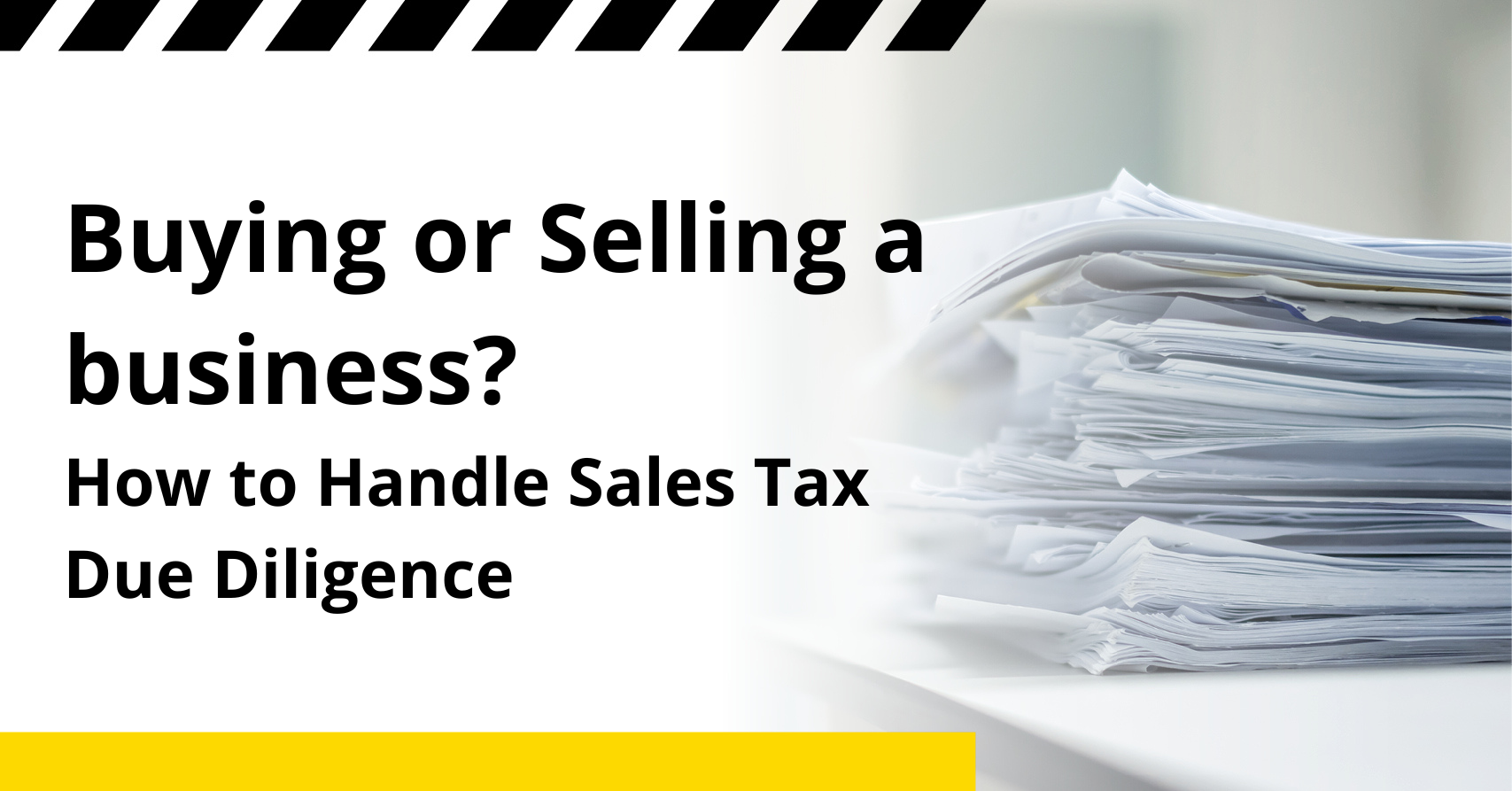When selling or purchasing a business, it is widely acknowledged that sales tax has become a critical due diligence checklist item over the last five (5) years especially with more and more scaling businesses being funded by venture capital / private equity investors.
As the seller, if your business is out of compliance, the issues uncovered during diligence could potentially stymie the deal and/or result in material deductions to the ultimate sale price.
As the purchaser, a business’s sales tax liability transfers to the buyer. And because sales tax is one of the few taxes that can be assessed personally against the owner of a business, it’s imperative that both parties, especially the buyer, understand any sales tax liability before signing on the dotted line.
Sales Tax Issues that can Arise in a Business Sale
In the best case scenario, the business in play is already fully sales tax compliant. This means the business is aware of all states where they have sales tax nexus, has been collecting the right amount of sales tax from their customers, and is fully caught up on sales tax filing and remittance up until the date of the sale.
Unfortunately, with all the changes taking place in sales tax since the 2018 South Dakota v. Wayfair Supreme Court decision, many businesses are behind the times when it comes to sales tax compliance.
Common sales tax issues that arise in due diligence include:
- The business owner has sales tax liability in a state but is not registered to collect sales tax in that state
- The business owner is registered to collect in a state but is not up-to-date on sales tax collection and/or filing and remittance
- The business owner registered for a sales tax permit late, without disclosing hidden sales tax liability from the time period before registration and compliance
- The business owner has been collecting sales tax incorrectly on certain products with special taxability status, such as food, clothing, digital goods, or dietary supplements
During due diligence, any of these scenarios could stymie the deal and/or become material deductions to the sale price. For a buyer, if these scenarios are not caught during due diligence, it can leave you holding the bag when it comes to paying past due sales tax.
Understanding Successor Liability
Unlike some other forms of tax, sales tax liability travels along with the business. This is a concept known as “successor liability.” In other words, the buyer of a business with sales tax liability takes on that liability.
Further, sales tax is one of the few taxes that can be assessed personally against the owner of a business. That’s one of the reasons sales tax has become such a hot potato due diligence checklist item and why it’s critical for sellers to identify and mitigate sales tax issues even before a potential exit.
How to Conduct Sales Tax Due Diligence
First and foremost when conducting sales tax due diligence, it’s important to hire a sales tax expert aka a state and local tax expert (SaLT). Sales tax is a specialized field in tax much as a neurologist is a specialized field of medicine. Just like you don’t want your general practitioner performing brain surgery, you don’t want your CPA advising on sales tax.
Your sales tax expert will go over the seller’s sales tax records and ensure they have been collecting sales tax in all nexus states, collecting the right amounts of sales tax, and filing and remitting on time.
In the best case scenario, there are no issues and the sale can proceed as planned (at least from a sales tax perspective.) But even if the sales tax expert does identify issues, there are options.
Seller Becomes Sales Tax Compliant Before the Sale
In this scenario, the seller takes the time to clean up sales tax issues before the sale. This could mean registering in new states, clearing up past due balances, and even negotiating voluntary disclosure agreements (VDAs) with states to mitigate prior liability and have penalties waived.
Seller and Buyer Agree on an Escrow Amount
In this scenario, the seller acknowledges that the buyer may run into sales tax liability issues and places an agreed-upon amount of money in escrow for the buyer to draw on should issues occur.
One drawback of this strategy is that it can be very difficult for a purchaser to estimate a potential acquisition’s sales tax liability just from readily available financial documents, such as receipts, exemption certificates, etc. Ideally, you have a full picture of the extent of any potential sales tax problems before the sale closes.
What’s next?
For 25 years at Hands Off Sales Tax (HOST), we’ve been helping business sellers and buyers make sales tax a non-issue when it comes to closing their transaction. Contact us today to get compliant and stay compliant, ahead of diligence.
